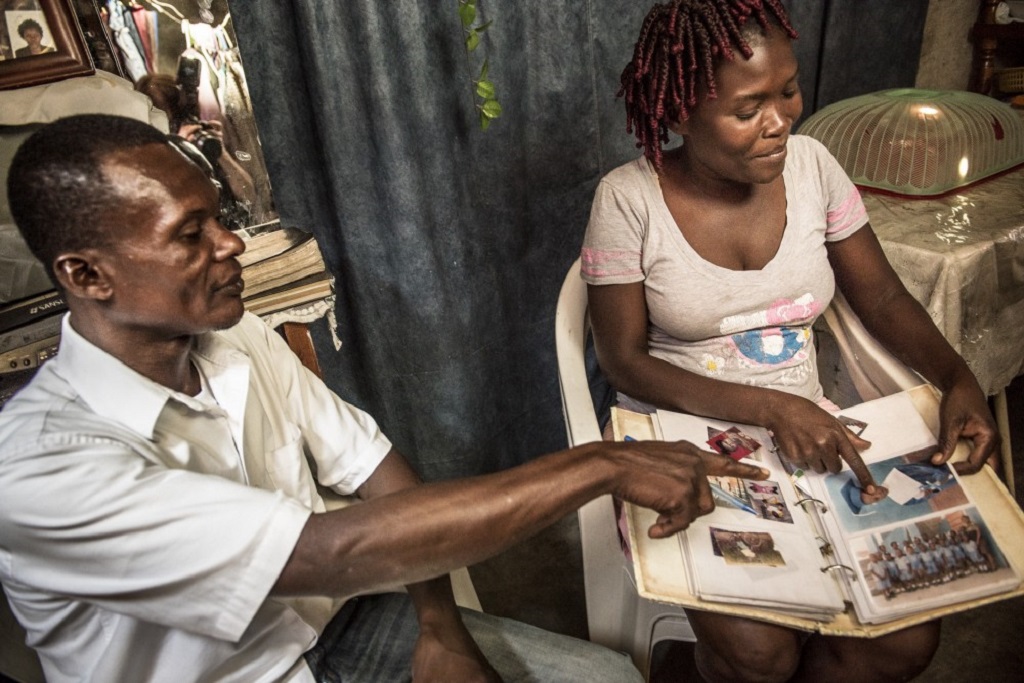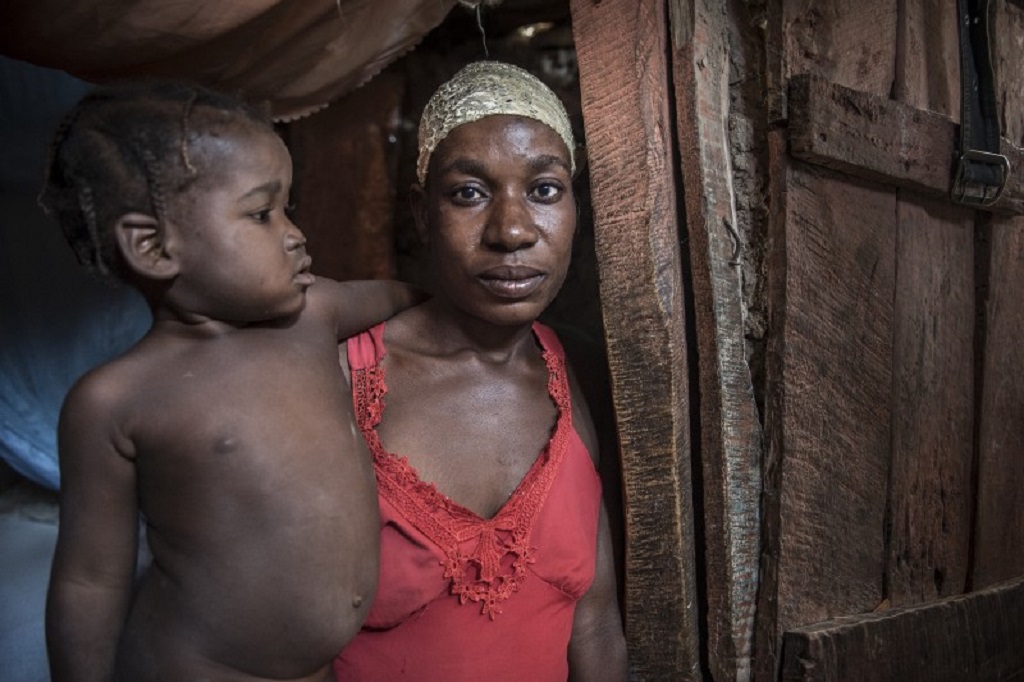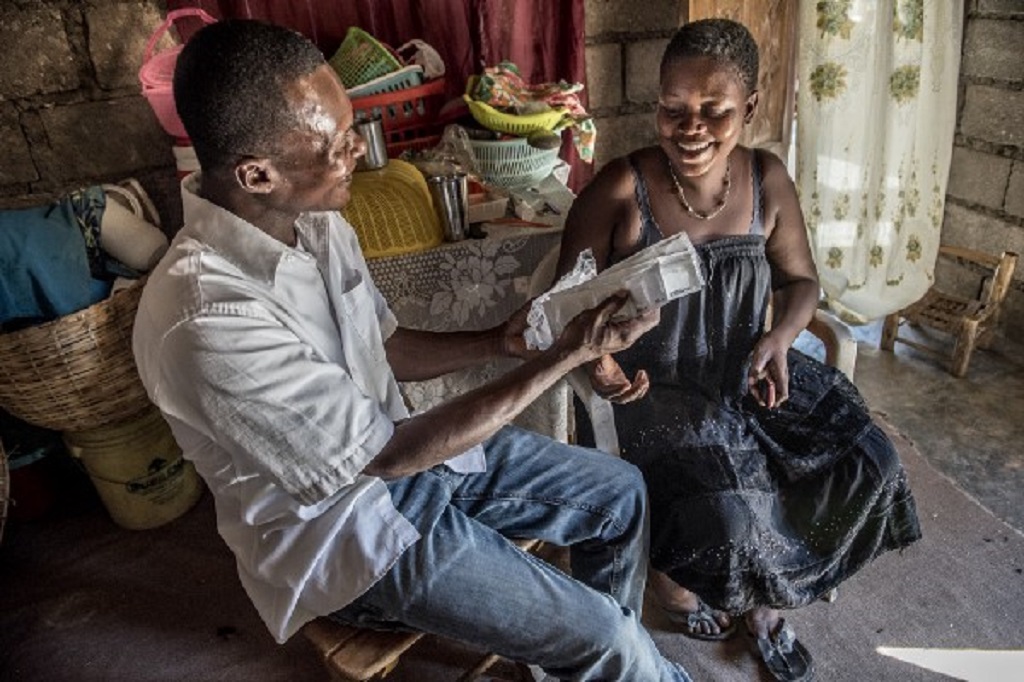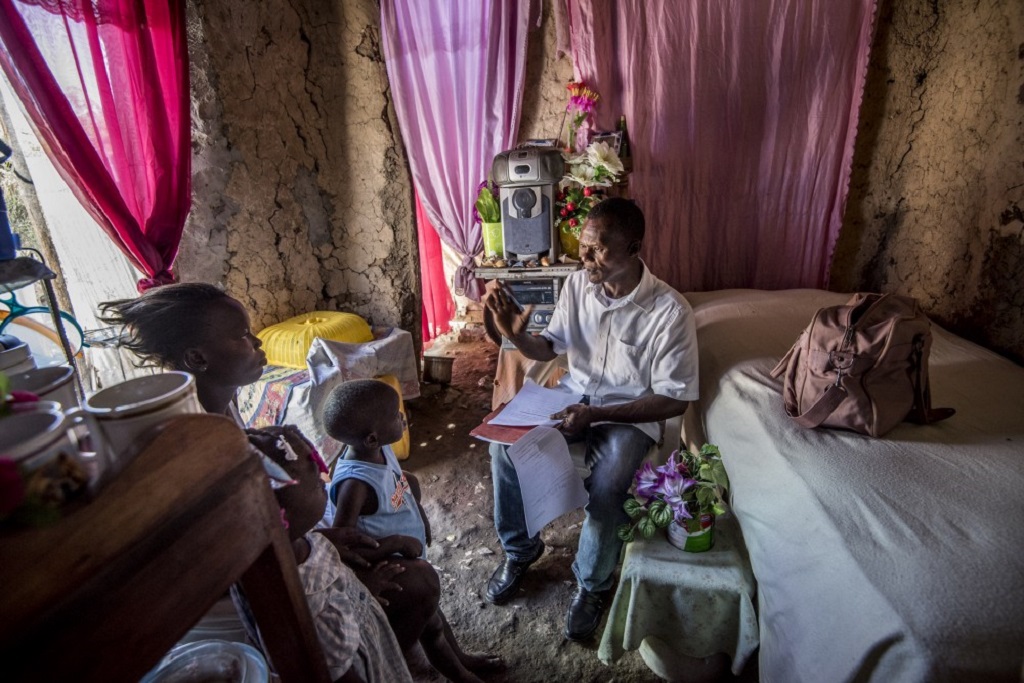This article originally appeared on USAID’s Medium website.
Pierre Tenor’s work — keeping fellow Haitians living with HIV healthy and strong — is much more than a job. “As an HIV-positive person, my joy is not limited to being healthy, but also seeing other people living with HIV in my community lead a normal life like any other person,” he says.
Because Pierre, 45, works three or four days a week, he is able to meet regularly with about two dozen families in Marchand Dessalines, a town north of Port-au-Prince, to make sure they are getting quality health care, including antiretroviral medications, within their community.
He is among 91 HIV peer educators across Haiti providing essential care to people living with HIV as part of USAID’s Maternal and Child Survival Program, led by Jhpiego.
USAID has partnered with Haiti’s Ministry of Public Health and Population to reduce the spread of HIV, ensure better retention of patients in care and identify those who have not returned to care.

Pierre is the embodiment of his country’s mission to bring an end to HIV, one client at a time. “I am an inspirer of hope, encouraging people with HIV to live and fight,” he says.
He does this by counseling clients about healthy behaviors and providing antiretroviral medicine to people living with HIV to ensure they are receiving treatment. If a community member has more extensive health needs, Pierre refers the individual to the nearest health center.
Pierre says he understands his clients’ fears and challenges because he has lived through them himself. By sharing his personal story of living with HIV, he offers encouragement and hope. After his diagnosis, he suffered discrimination of all kinds and was made to feel that he had no standing in the community.
Pierre felt otherwise, believing that with treatment he could continue to contribute to his community. He has continued his profession of cabinetmaking, which he sees as proof to his community that a person living with HIV can live a normal life.

Pierre is both an educator and an ally — living proof that a healthy and fulfilling future is possible not only for his clients, but also for future generations.
Normal Chaunie, a young woman whom Pierre has worked with for several years, followed his advice to go to the health center during her pregnancy to receive appropriate medical care to ensure that her baby would be born free of HIV.
She is grateful that her daughter was born healthy. “I regularly take my medicine because I want to live for my children,” Normal says.
Pierre also has made a difference in the lives of Luciana Telo as well as her husband and child. Luciana scrupulously follows Pierre’s advice in managing her HIV. He brings her medications and carefully explains when and how to take them, as well as what to do if she experiences any side effects.

When challenges arise, Pierre advocates on his clients’ behalf. Clothilde Brazil, a mother of six, had stopped taking her antiretroviral medications because of the side effects of dizziness and nausea.
Pierre, eager to see Clothilde in top form, recommended she go to the local health facility for follow-up care. She went to Happy Hospital Claire. Once there, Clothilde received advice on how best to take her medications to avoid side effects, such as taking it at least two hours before bed.
By empowering Pierre and other HIV peer educators with the necessary skills and supplies, the program has increased the number of people consistently receiving HIV care and treatment. As of June, more than 12,800 HIV-positive patients were on antiretroviral treatment across the 42 HIV facilities supported by USAID.
USAID is working with the Government of Haiti toward the “90–90–90” goals adopted by UNAIDS and reinforced by the U.S. President’s Emergency Plan for AIDS Relief (PEPFAR): that by 2020, 90 percent of persons living with HIV know their status, 90 percent of those diagnosed with HIV receive sustained antiretroviral therapy, and 90 percent of those on antiretroviral therapy achieve viral suppression.
Pierre is one of many offering hope to Haitians living with HIV — helping these individuals realize they and their families can live a healthy life.

